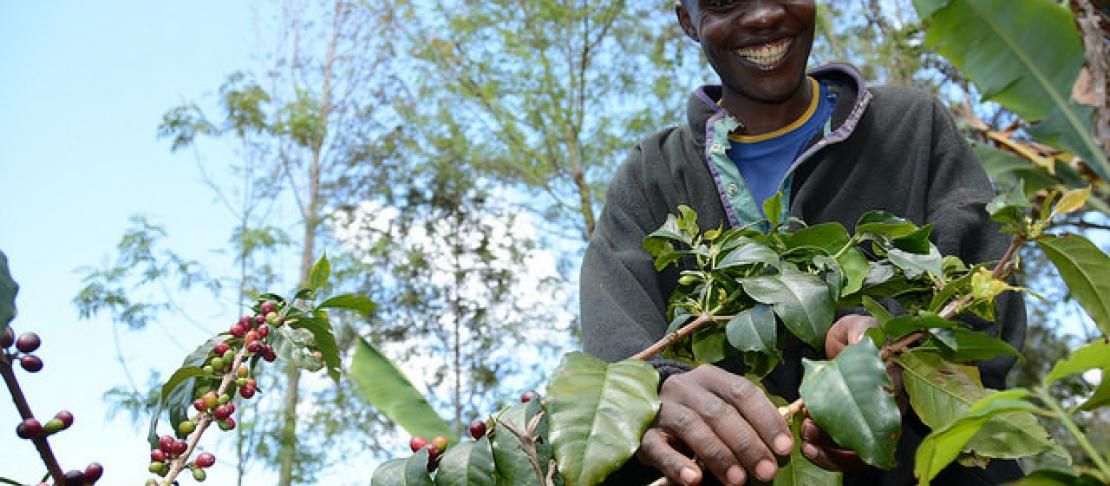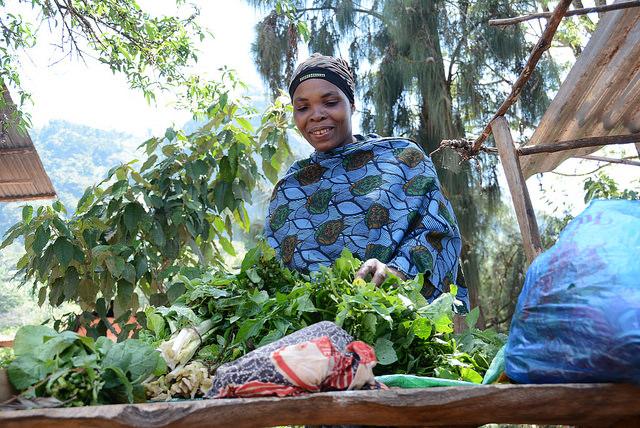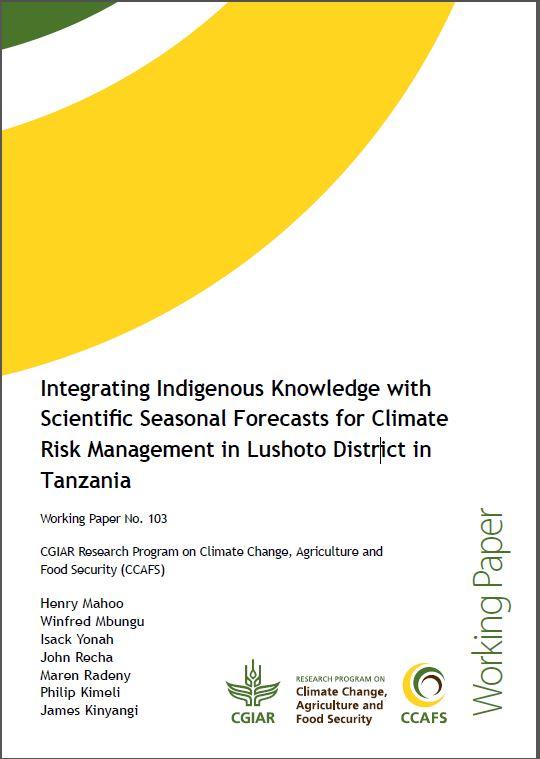Integrating indigenous knowledge with scientific forecasts in Lushoto, Tanzania

Improving food security needs appropriate climate related risk management strategies. Read more on integration and utilization of indigenous knowledge and scientific weather forecasting in Tanzania.
“We used to grow cassava, coffee, tomatoes, bananas and pumpkins very successfully and without using fertilizers and pesticides. We had bumper harvests. All this has changed; even with heavy investment of inputs, you cannot get a good yield," says Swadakati Said, a farmer from Mbuzii village, Lushoto, Tanzania.
download the paper
Farming households in many parts of the world, including Africa, are facing huge changes and challenges including continuing high population growth, declining soil fertility and crop yields, poor market access and unpredictable weather patterns. Household food insecurity is a common problem. Improving food security needs appropriate climate related risk management strategies. These include using climate information to guide farm level decision-making. In Lushoto climate-smart villages, farmers have been using indigenous knowledge (IK) forecasts to predict the weather.
The CGIAR Research Program on Climate Change, Agriculture and Food Security (CCAFS) East Africa, Sokoine University of Agriculture (SUA) and Tanzania Meteorological Agency (TMA) recently undertook a study to promote the integration and utilization of IK and scientific weather forecasting to improve farmer decision-making and management of climate risks. The specific objectives were: to identify and document existing IK in weather forecasting practices; to establish IK weather forecasting zones and teams; and to operationalize the integration and dissemination of IK and scientific weather forecasts.

for better agricultural productivity, Smallholder farmers require timely, reliable and user friendly weather forecasts. Photo: s. Kilungu (ccafs)
Findings:
Identification and documentation of existing IK in weather forecasting practices
Indigenous knowledge is often passed on from one generation to the other by the custodians and is not widely documented. Locally observed variables and experiences have been used to assess and predict the local weather conditions in Lushoto. The most common IK indicators in Lushoto are birds (swallows, hornbills, owls, coucals, and golden orioles), animals (baboons, monkeys, and antelopes), insects (thrips, ants, bees, locusts, and butterflies), shrubs and trees. The occurrence of large flocks of swallows and swans roaming from the South to the North during the months of September to November, for example is an indication of onset of short rains.
Majority of the respondents (over 90%) indicated that they were aware of the indigenous weather and climate forecasts, with 83% reporting using IK forecasts in planning their agricultural activities. Most of the farmers (56%) believed that the IK forecasts were reliable compared to 22% for scientific forecasting.
IK weather forecasting groups
Three local IK forecasting groups consisting of seven people for each administrative ward were established. These groups meet twice a month to discuss and document the IK weather forecast observations. Subsequently, they give two-week weather forecasts twice a month, describing the indicators that they use for forecasts. Apart from issuing new forecasts in their regular meetings, the previous forecast is also reviewed.
Overall, the forecasts from the IK groups were fairly accurate as the review showed that most of the time the IK groups got it right. However, it is important to document the IK forecasts to make better conclusions.
Download the paper to read the findings: Integrating Indigenous Knowledge with Scientific Seasonal Forecasts for Climate Risk Management in Lushoto District in Tanzania
Conclusion and recommendations
This study revealed that lack of documentation and reliability are among the key challenges in using IK forecasts. Consequently, there is need for systematic documentation of IK in order to sustain and improve it for use by future generations. There is need to strengthen IK in weather forecasting, especially due to increasing changes in weather patterns and variability by integrating it with scientific weather information.
Read more: Traditional forecasting meets science for climate risk management
The provision of climate information services in Lushoto will be improved through the district consensus weather forecasting team composed of a multistakeholder partnership that involves the local community, agricultural extension services and the TMA. Equally important is the establishment of an information dissemination network that provides information to all farmers beyond the administrative wards, as all the farmers in the district need to manage climate-related risks. This could be achieved by integrating systems for disseminating climate information within the local communities, e.g. through the local schools, community-based organisations, churches in highly religious communities, partnership with NGOs and agricultural input dealers and service providers. Similarly, integration of weather forecasting into the national agricultural policies and District Agricultural Development Programmes (DADPs) would greatly enhance food security, as it would lead to better-informed decisions at farm level. For easier understanding of the forecasts by majority of the farmers, there is need to translate the consensus weather forecasts into the native language.
Other related blogs:
Time for an exit strategy to traditional climate forecasting?
Vivian Atakos is Communications Specialist with CCAFS East Africa. Working Paper was authored by Henry Mahoo, Winfred Mbungu, Isack Yonah, John Recha, Maren Radeny, Philip Kimeli and James Kinyangi


